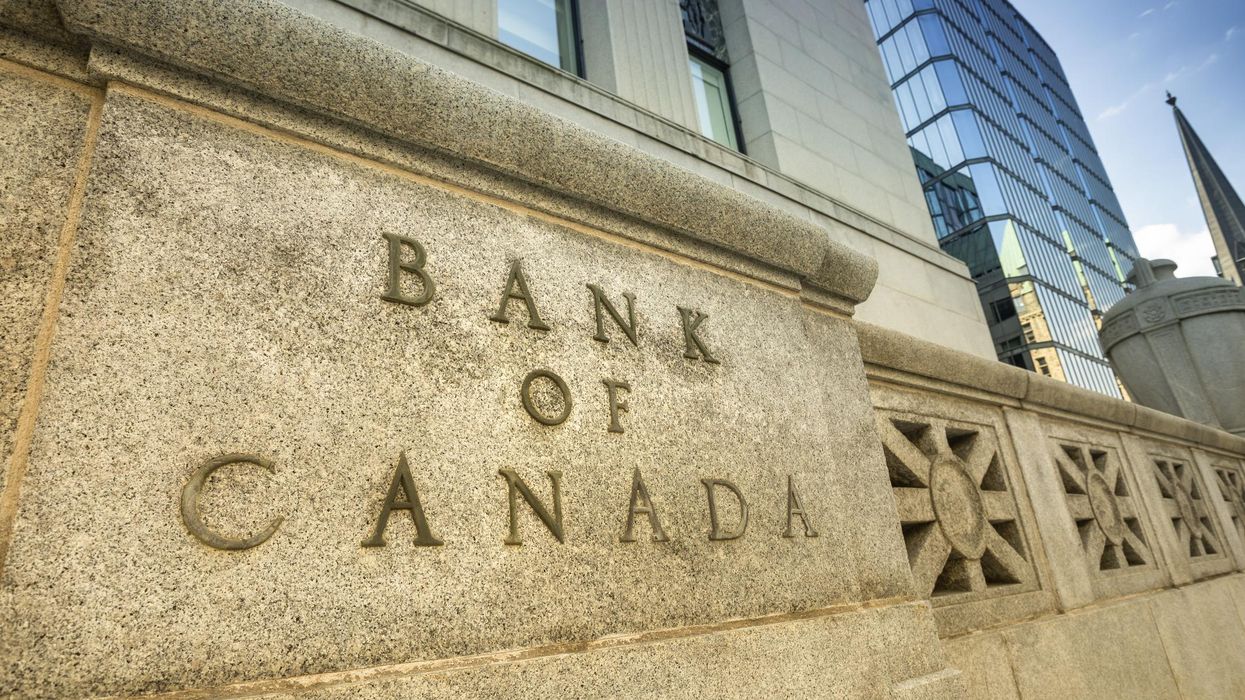Canada's Interest Rate Has Increased Yet Again & Here's What It Means For Homeowners
Experts predict homeowners in some cities will now pay up to $129 more every month.

The Bank of Canada.
The Bank of Canada has confirmed yet another increase to interest rates in Canada, but said this could be the last rate hike of the cycle.
On January 25, as expected, the central bank raised its policy rate from 4.25% to 4.5% – an increase of 25 basis points.
The jump marks the eighth consecutive time the Bank of Canada (BoC) has raised the cost of borrowing since March 2022 — and the highest the key rate has been since 2007.
It means the benchmark interest rate has risen at a record pace of 400 basis points in nine months, therefore breaking historical records in an effort to reduce inflation and get the cost of housing in Canada under control.
In a statement about the interest rate hike, the BoC said that Canada's economy remains overheated which is why rates have been increased for the eighth time.
However, it's not all bad news, as the central bank said that it now expects to hold the rate at its current level while they "assess the impact of the cumulative interest rate increases."
It was noted, however, that interest rates could be raised once again in the future if needed to bring inflation to the target of 2%.
To this end, the bank said it "remains resolute in its commitment to restoring price stability for Canadians."
In the meantime though, the jump will undoubtedly impact both homeowners and potential buyers in Canada.
In a statement shared with Narcity, experts from LowestRates.ca explained that the 25 basis point increase will raise the existing prime rate from 6.45% to 6.7% at most of Canada's big banks.
"Variable rate mortgages are tied to the prime rate and current variable rates are at a discount of prime minus 1%," the company explained in an email.
"Therefore, if today’s lowest variable rates remain consistent, they will go up to 5.7%."
What this means, essentially, is that for every $100,000 in a variable-rate mortgage, an extra $20 per month will have to be paid back.
On a national level, LowestRates.ca predicts that the average Canadian household (based on the average home price in 2022) will pay around $80 more per month following the latest increase — based on previous monthly mortgage payments of $3,261.
This figure is even higher in cities like Toronto and Vancouver, where the average homeowner who purchased a property in 2022 will pay an extra $127 and $129, respectively, on their mortgage every month.
While it's a little less in other cities — like Calgary ($66 more each month), Edmonton ($47 more) and Halifax ($46 more) — the regular increases will continue to put pressure on homeowners.
“It would be hard to dispute that many homeowners and buyers are feeling concerned today,” says Leah Zlatkin, LowestRates.ca expert, explained.
“Given that we saw seven consecutive rate hikes in 2022, this will make things even more challenging for many mortgage holders and hopeful buyers, as they tighten their finances to ride it out until the Bank’s next announcement."
This article's cover image was used for illustrative purposes only.
- The Bank Of Canada's Interest Rate Hike Could Cause A Recession & It's Happened Before ›
- The Bank Of Canada Explained Why It's Raising Interests Rates & How This Combats Inflation ›
- You Might Have Unclaimed Money From The Bank Of Canada & You Can Check Within Minutes - Narcity ›
- GTA Home Sales Are Slowing Down Due To Interest Rates & These Properties Are Most Affected - Narcity ›